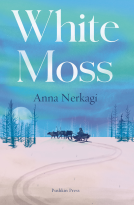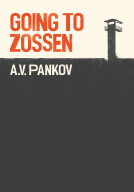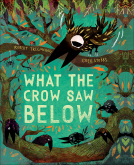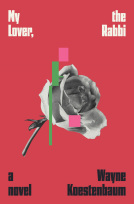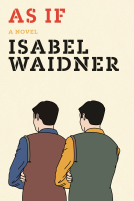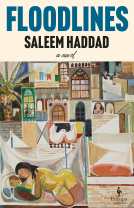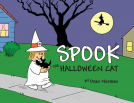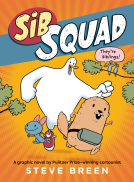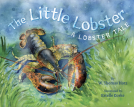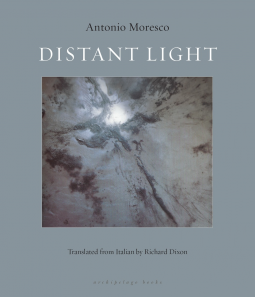
Distant Light
by Antonio Moresco
This title was previously available on NetGalley and is now archived.
Send NetGalley books directly to your Kindle or Kindle app
1
To read on a Kindle or Kindle app, please add kindle@netgalley.com as an approved email address to receive files in your Amazon account. Click here for step-by-step instructions.
2
Also find your Kindle email address within your Amazon account, and enter it here.
Pub Date Mar 15 2016 | Archive Date Feb 01 2016
Archipelago Books | Archipelago
Description
Advance Praise
"Halfway between fairy tale and science fiction, between religious and sacreligious, between poetry and philosophy, this book by Antonio Moresco looks with careful but compelling insistence at the mystery of what happens 'in the dark funnel' of a life and the very material that makes literature." --Anna Ruchat, Pulp
"It is a Canticle of the Creatures re-examined and modified with the eye of Galileo and the tragic vision of Leopardi, a prayer without religion but full of human religiosity. This small enchanting book is a modern De rerum natura of lyrical biology. Moresco is not only one of the greatest Italian writers, he is also the ultimate poet." --Massimiliano Parente, Il Giornale
"[Moresco's trilogy is a masterpiece] that raises Moresco to the heights of Italian literature, placing him in a line that moves beyond postmodernity." -- The Financial Times
A review by Nathalie Crom of the French translation appeared in Télérama in October 2014 and can be found here: http://www.telerama.fr/livres/la-petite-lumiere,118194.php
Available Editions
| EDITION | Other Format |
| ISBN | 9780914671428 |
| PRICE | $18.00 (USD) |
Average rating from 13 members
Featured Reviews
 John L, Reviewer
John L, Reviewer
Four and a half stars, as the following should convey...
Our unnamed narrator might as well be the only person alive. He knows he's not – he still goes down to the nearest inhabited village to buy things to eat and other necessities, and he sees planes spreading their contrails over the remote area he lives in – but he might as well be. A lot of his thoughts are about life, however, for he has little to do except notice the nature around him, from the smell of lilies burgeoning with nobody else to see them in this deserted village, to the swallows darting across the ravines of the countryside. Life – and the nature of a light that he sees spring into activity every night at what he thought was a totally lifeless, empty forest area on land separated from his lookout post in his back garden by a deep, wooded gorge…
This is one of those books where less is more – the less you know about it, the better. So I can't really begin to discuss the plot of it, for sake of spoiling things. And so I'm left with just mentioning the nature of the lead character – who I assumed to be male throughout, only to find proof in the last chapter. The first thing to mention as regards him is that he is an unreliable narrator – but not in the sense you think. I can't tell quite what to make of him; he seems certainly intelligent and modern at times, but he has ended up (seemingly by choice) living in a falling-down house in a fallen-down village, connected to the electric grid yes but without any other sign of humanity for some time. And it's an earthquake zone. His attitude to this seems quite matter-of-fact, although he does seem to take umbrage against certain aspects of nature. While talking to the wildlife he seems to have a disapproval of the act of life itself – the breeding, maintaining the struggle side of things. Elsewhen he's perfectly respectable and humane.
But he also proves to be unreliable – in cahoots with the author here – in not asking the right questions. Questions about where the food is coming from, for one thing – and again I can't discuss anything else without bringing a house of cards spoiling down around myself. This book, whatever you make of it, will leave anyone with unanswered questions, with multiple frustrations. So why did I like it so much? Well, it might be because I could immediately see the setting, although I took it as around Matera in Italy which isn't wooded enough to be correct, and not in the author's native north. There is a completely immersive feel, regardless of your own travels, in the book, for the narrator, being so in tune with the stones, the nature and the entropy at play in the village, really conveys the life. There's a superlative sense of mystery – when and where are we, who is this man and what his back-story? And how does this fit in with what the author normally gives us?
That isn't a question worth answering in detail, for the riches on the page are enough. It seems perfectly translated by Richard Dixon – certainly I've never read anything with the word vegetal included so many times. The style strikes a balance between literary fiction and general, in that it is accessible to all while maintaining a great artfulness and class. The poise with which secrets are revealed or hidden, the matter-of-fact way the narrative and narrator collude to be so blasé about something quite striking – there is an invention in these short pages that makes me exceedingly grateful people can get books like this translated into English for the likes of me.
 Mandy J, Reviewer
Mandy J, Reviewer
This is a very strange little book indeed and I’m not at all sure I understood it. Nevertheless I found it compulsively readable and quite mesmerising. It begins with the unnamed narrator telling the reader he has moved to an abandoned house in an abandoned village. At first you feel that there has been some sort of disaster and that we’re in some sort of post-apocalyptic world, but the narrator is not alone. Indeed some sort of normal life seems to be going on around him. He even has a car. And there are shops he visits. But the book becomes deeply puzzling when he goes to investigate a light he can see in the distance, which he spots going on at the same time every night. From there on the story becomes increasingly bizarre. Science fiction, a fable, a fairy tale? A meditation on life and death? This English language debut of the Italian author gives the reader plenty to muse on and much to enjoy.
Consistently Inconsistent - Take From It What You Will
I am a great admirer of post-postmodern experiment and fancy, and this is a very nice example. Call it magical realism, or fabulous, or just a dreamscape - however you characterize it this is a satisfying meditation buoyed by a very unrealistic reality. Adding to its charm, the tale is just a bit, I suppose, awkward or stilted or oddly formal. That may be intentional or it may be a consequence of the translation, but either way this slight oddness perfectly complements the tale. (The balance of this review contains SPOILERS OF A VERY GENERAL SORT.)
And it's fabulous on multiple different, but interconnected, levels. On a more subtle level, most of the settings and descriptions don't make sense. Our narrator lives alone as a hermit in a remote and completely abandoned village. Yet he has electricity and hot and cold running tap water. He is, almost literally, in the middle of nowhere, and yet he drives his car everywhere. The effect is that this remote village, which cannot exist the way it's described, becomes more a state of mind and mood than an actual place. What we end up with is the impression that everything, everywhere, is just sort of winding down.
On a larger level the plot, or more properly the interconnected scenes and events, suggest a ghost story, a descent into madness, some sort of post-traumatic disorder, an alien contact tale, or a slow unravelling of our narrator's grip on reality. You could make an argument for any of these interpretations, as well as many others, and to me that's what makes the book fun.
Not unsurprisingly, but interestingly, the chapters of the book could probably be shuffled at random without doing too much violence to the overall reading experience. The narrator has numerous run ins with dogs, which symbolize something to the author that I don't quite get. The narrator talks to bees and plants, which is some sort of Gaia/Earth angle that was also lost on me. Random characters, which may be additional ghosts or ghost memories, occasionally wander or march through the narrator's abandoned village.
But, in addition to these bits of business there are scenes of greater power. The narrator's conversations, often abrupt, truncated, and/or cryptic, about what may or may not be a night school for ghost children, and the narrator's interactions with an odd and close-mouthed alien hunter, are creepy and striking.
And of course at the heart of the book is the narrator's observations of and conversations with the boy who is the source of the "distant light" that animates the book. The child is mysterious and unknowable - an angel, a ghost, an alien, a stand-in for the narrator's soul? The slow circling of these two characters is what powers the book and drives the reader on, and the authors simple and sometimes even broken and abrupt narrative voice just heightens the stakes.
So, bottom line, this isn't anything like a traditional stoy; it is a mood piece and a meditation. But even though it is open ended and doesn't ever reach a clear resolution I wasn't annoyed or disaapointed. It's inconclusiveness was in keeping with the entire enterprise, and I found it quite satisfactory.
(Please note that I received a free advance ecopy of this book without a review requirement, or any influence regarding review content should I choose to post a review. Apart from that I have no connection at all to either the author or the publisher of this book.)
 Reviewer 68310
Reviewer 68310
An understated but utterly lovely tale with an ending that could not have been more perfect for the rest of the book.
 Andrija F, Educator
Andrija F, Educator
*Distant Light* by Antonio Moresco is a novel that blends elements of philosophical and existential inquiry with a narrative of personal and societal disintegration. The story follows an unnamed protagonist who embarks on a journey through a desolate and dystopian world, grappling with themes of isolation, meaning, and the search for light in darkness. The novel explores the fragmentation of civilization and the inner struggles of individuals as they confront their own existential crises. Moresco’s writing is known for its intense and evocative prose, offering a profound meditation on the human condition and the quest for hope amidst despair. The narrative is characterized by its lyrical and introspective style, creating a deeply contemplative reading experience.
Readers who liked this book also liked:
Carine Laforest;
Children's Fiction
W. Thomas Hotz, illustrated by Estelle Corke
Children's Nonfiction, Outdoors & Nature, Science

